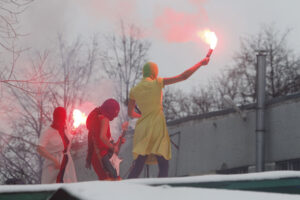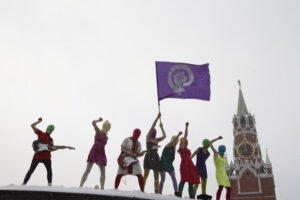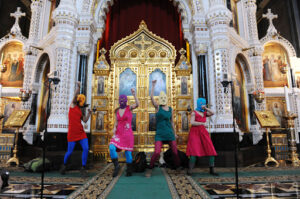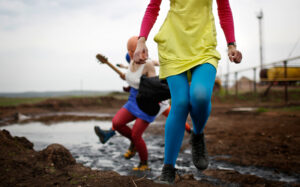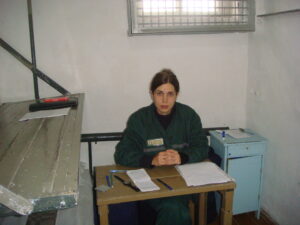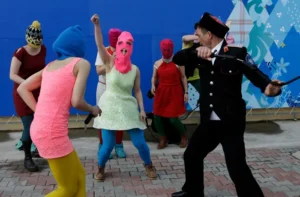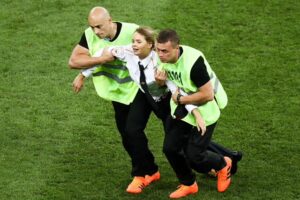These actions are archived and translated from the original Pussy Riot blog (which existed at pussy-riot.info) from 2011-2014. The statement from the 2018 World Cup / Policeman enters the Game was archived from the collective’s official Facebook Channel. They are preserved here for archival and legacy purposes of the video, photos, and original official statements made by the collective. The videos are sourced from various official channels.
The original russian-language version can be accessed on the Wayback Machine here.
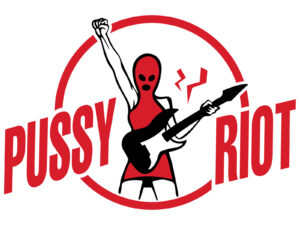
The logbook of feminist punk group Pussy Riot



